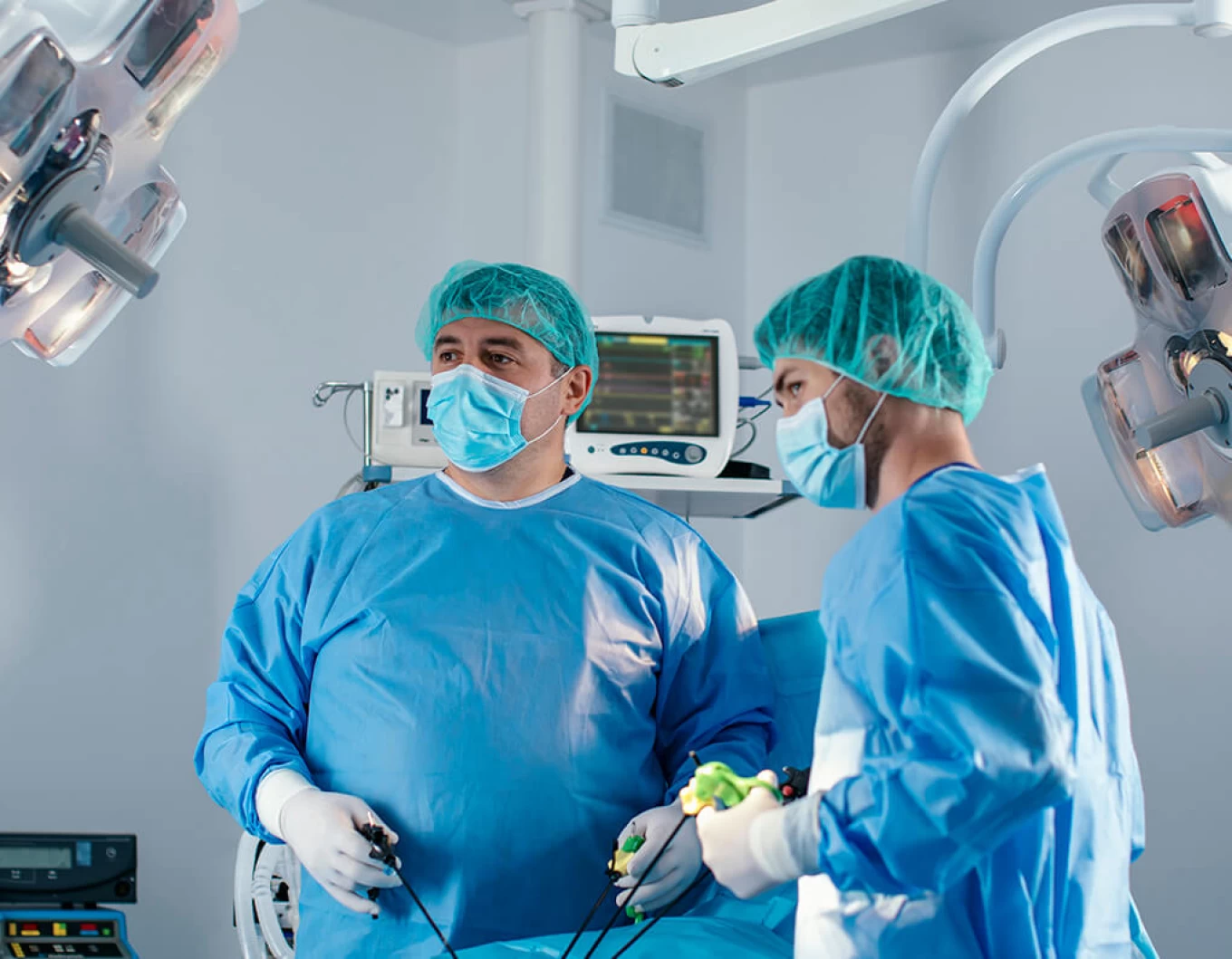Department of Surgical Urology
Head of the department - Zaal Kvirikashvili
One of the departments of Todua Clinic, Surgical Urology, is equipped with the latest generation laparoscopic sets from the companies STORZ and OLYMPUS, as well as modern endoscopic equipment.
The symptoms of urological diseases are:
- Frequent urination
- Blood in the urine
- Urinary retention
- General deterioration of health, and others
These are symptoms that patients may overlook. It is essential for patients to consult a doctor at the first signs and undergo diagnostic tests to detect the disease at an early stage.
The following procedures are performed on an outpatient basis in the department:
- Cystoscopy with biopsy using the latest flexible video cystoscope
- Prostate biopsy with ultrasound-guided transrectal targeting
- Biopsy of tumors of various localizations
- Urinary catheterization and stenting
- Epicyctostomy
In the Surgical Department, the following procedures are performed:
- Modern oncological surgeries
- Urological surgeries
- Laparoscopic surgeries
- Open surgical surgeries
Kidney Cancer:
- Open and laparoscopic nephrectomy
- Organ-preserving – kidney resection
- Adrenal gland removal
Bladder Cancer:
- Transurethral resection
- Radical and modified cystectomy with lymphadenectomy
- Enterocystoplasty
Testicular and External Genital Organs Cancers:
- Testicular removal
- Retroperitoneal (para-aortic) lymphadenectomy
- Amputation of external genital organs
- Inguinal lymphadenectomy
- Pelvic lymphadenectomy
Prostate Cancer:
- Laparoscopic prostatectomy
- Benign prostate tumors (adenoma) – transurethral resection with a bipolar resectoscope
Radical Surgical Treatment of Pelvic Organ Cancers:
- For locally advanced cancers
- Combined surgeries
- Reconstructive-restorative
- Radical surgical treatment of retroperitoneal, abdominal, and pelvic cancers.


